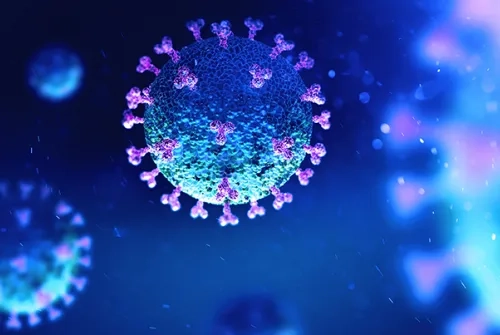Alo Yeditepe
Alo Yeditepe
Are Vaccines Effective Against Delta Plus?
Whether Covid-19 vaccines are effective against the Delta Plus variant is one of the most curious issues.
We know that the delta variant is seen in more than 104 countries around the world, as well as in our country. Moreover, as is known, it transmits much faster than the first detected alpha variant. Stating that the delta variant spreads 50 percent faster than the first alpha variant and is more contagious, Yeditepe University Hospitals Medical Microbiology Specialist Prof. Dr. Pınar Çıragil underlined that it is necessary to pay much more attention, especially in crowded environments, since it is increasingly detected.
Does It Spread Faster Than Delta?
There are 11 types of SARS-CoV-2 virus identified and monitored by the World Health Organization (WHO). One of these variants, the Delta variant, is also known as‘ B.1.617.2 '. It was first identified in India in December 2020 and was found to be 40-60 percent more infectious than the previously dominant Alpha variant. Although there are concerns that this variant, which has been identified in more than 10 countries, may be transmitted faster, the contagion of this variant is also reported to be similar to the existing Delta variant.
Who Is At Most Risk?
The Delta Plus variant is of concern worldwide due to its high infectivity, stronger binding to lung cell receptors, and potential reduction in response to treatment. This variant may have a slight advantage in a spread in those who have previously had Covid-19 infection or have a poor vaccine response, or in those who are under-vaccinated. However, it is stated that this situation is no more than the Delta variant. To understand the characteristics of this recently detected variant, it is necessary to obtain more data from people infected with the Delta Plus variant.
Does The Hospitalization Rate Decrease?
Although there is not yet sufficient data on vaccine efficacy against the Delta Plus variant, there is no clear information that the variant also infects vaccinated individuals. However, no increase in the incidence of the Delta Plus variant has been reported in fully vaccinated individuals. In a study conducted in Canada, the Pfizer/BioNTech vaccine was reported to be 56 percent effective in protecting from symptomatic infections 14 days after the first dose, and 87 percent effective 7 days after the second dose. Although it is thought that the spread and hospitalization rates will be less in populations with two doses and a certain rate of vaccination, variants with increased infectiousness and the potential to escape antibodies pose a threat to efforts to control and mitigate the pandemic.
How Can We Protect Ourselves From The Delta Virus?
- Due to the spread of the Delta variant around the world, who advised people to continue wearing masks regardless of their vaccination status. The maximum number of people should be vaccinated against this variant, and the mask-distance and hygiene rules should be followed.
- Never be unmasked in crowded and closed environments. Pay attention to social distancing rules. We know that vaccines are effective in this variant. The Biontech vaccine has been reported to protect against 88 percent of symptomatic diseases and prevent 96 percent of hospitalizations. However, as the spread increases in crowded and closed societies and environments with unvaccinated people, we may encounter new variants, and it is not possible to give information about what new variants will bring us about hospitalization and serious infections, and what problems they will create. Therefore, even if you are vaccinated, it is very important to be careful not to be in closed and crowded environments and to follow the mask and distance rules.
- Do not be in crowded environments and without masks, when possible, even in open environments.
- Make sure to complete your vaccinations. It should be remembered that even if the person is vaccinated, it is possible to be infected with a delta variant and no vaccine has a hundred percent protection. The mask and distance should be paid close attention to prevent contamination.
- If possible, care should be taken to sit in open environments and with a distance between them.
- On the way to and from the holiday, masks must be used as the stopover places will be very crowded. In the stopover places, it should be kept as short as possible (10-15 minutes) in indoor environments. Masks should be worn at all times.
- In public vehicles such as buses and airplanes and at boarding points, social distance rules must be followed, and masks must be worn.
- First of all, it should be ensured increase the level of social awareness about vaccination, paying attention to social distance, and wearing a mask. We have to warn each other about this.
Press Coverage: sozcu.com
About
Faculty and Year of Graduation:
Çukurova University Faculty of Medicine, 1990
”
See Also
Alo Yeditepe




